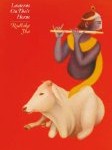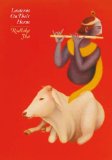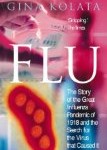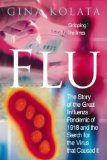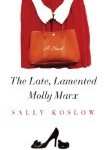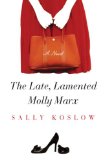Lanterns On Their Horns is a gentle story about life in rural India. Ramu and Laxmi live in a village which has turned it’s back on modern society, but the couple are ostracised from village life because of the shame of Laxmi’s father’s suicide. They struggle to get by until one day their lives are changed by the discovery of a stray cow in the forest.
Manoj and Pratima live a very different life. Manoj works on a new project to artificially inseminate Indian cattle with European sperm, with the aim of increasing milk yield. Rural farmers do not understand the concept of cows becoming pregnant without a bull being present, and so are deeply mistrusting of him. The book highlights the conflict between modernisation and traditional rural life.
Lanterns On Their Horns isn’t like your typical Western novel, it has a distinctive Indian feel and some unique attributes. Whole sections are written from the perspective of a cow. It sounds really weird, but it actually works:
Being alone was new. From the time she was born, creatures similar to her had surrounded her. Now a nameless dread loosened her bowels. It was of a place to which cows went alone. It made her want to run, but she didn’t know where.
I loved being inside a cow’s mind and as with the amazing mouse scene in The End of Mr. Y I now have a renewed empathy for these animals. The pace of the book is quite slow, but I loved learning about Indian culture and traditions so much that I didn’t mind. This book gets deep into Indian life without the depressing violence of A Fine Balance, but it feels much more realistic than Q and A . I think it is a great average of the two.
If you like to be immersed in different cultures or have always wanted to know more about cows then this book is for you.
Recommended.
![]()
Lanterns on Their Horns was released in the UK today. It isn’t available in the US at the moment, but you can buy it with free international delivery from The Book Depository.
About the author
Radhika Jha is a best selling author in India. Her debut novel Smell, won the French Prix Guerlain and has been translated into sixteen different languages. This is her second novel.
What is your favourite book with an Indian setting?
Have you read any great books which allow you to get inside the mind of an animal?
